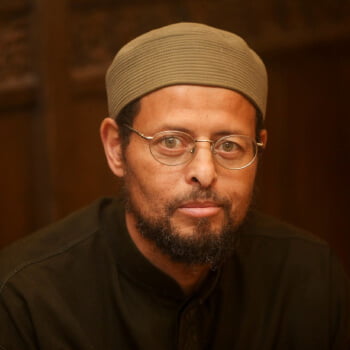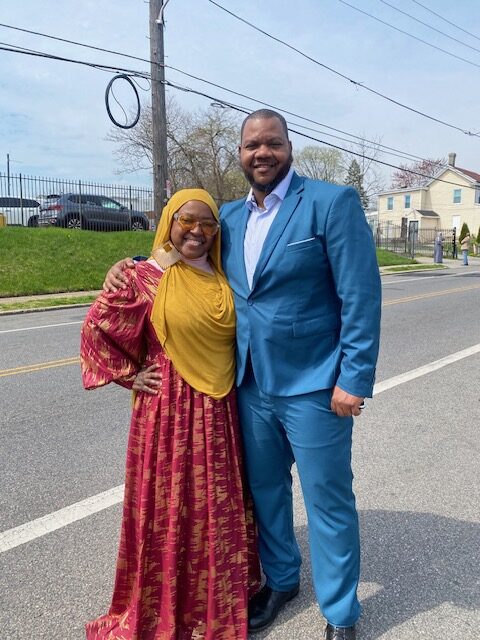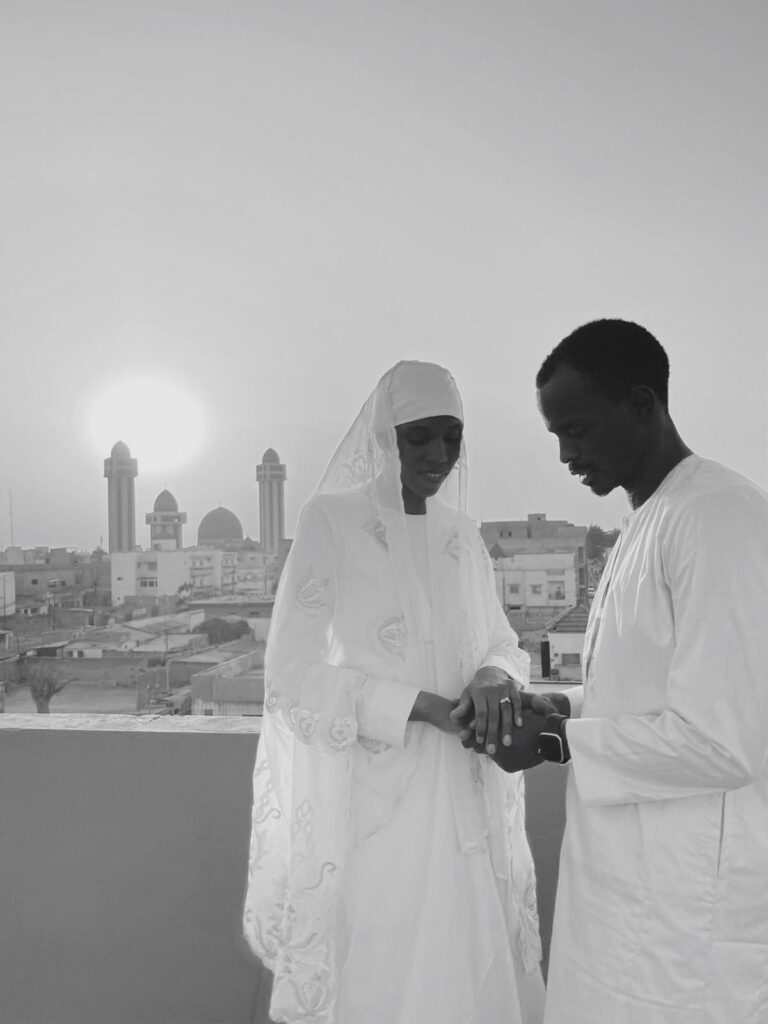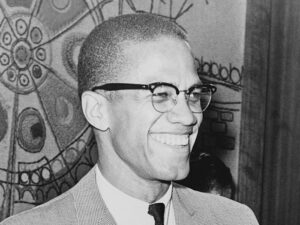On Saturday, May 24th, the Healthy Marriage Cohort held its sixth virtual town hall meeting. This was a heartfelt and engaging event that brought together couples experienced in polygyny. The purpose was to highlight positive examples of polygyny, foster understanding, and enhance discussions on this often-misunderstood practice through considerate and compassionate dialogue.
As part of MANA’s Initiative to Strengthen African American Muslim Families (ITSFAAM), the town hall featured couples who openly shared their personal journeys and experiences entering polygynous marriages, and the motivations behind their decisions. The conversation provided valuable perspectives on how polygyny can be a means to cultivate marital love, spiritual growth, emotional resilience, and community well-being, despite the negative stereotypes associated with it.
I genuinely enjoyed interviewing our guests, each offered meaningful insights to the discussion. Below, you’ll find the complete video replay along with a summary that highlights the contributions of each guest.
Summaries of Contributions From Each Guest
Imam Zaid Shakir

Imam Zaid Shakir, MANA’s esteemed founding member and former Amir, provided an insightful analysis of polygyny, offering a balanced view that considers both religious permissibility and modern social realities. While acknowledging polygyny’s legitimacy within Islamic tradition, he framed the discussion in the context of the systemic challenges faced by African American communities, such as the disproportionate impact of mass incarceration on Black men, the cultural erosion of masculine identity, and a slight gender imbalance, with 50.5% women to 49.5% men.
Though acknowledging polygyny’s potential theoretical value for marriage accessibility, Imam Zaid emphasized practical failures, noting most plural marriages prove unsuccessful and often traumatize children, sometimes leading to religious disengagement. His recommendations prioritized strengthening monogamous marriages through spiritual purification programs and institutional reforms before considering polygynous arrangements. Emphatically, he frames marriage as Sunnah (recommended but not obligatory), urging believers to focus on their personal worship and emotional maturity rather than viewing marriage as mandatory. His analysis concludes with a stark warning: current community conditions lack the spiritual preparedness and support systems required for healthy polygynous families, risking generational dysfunction without comprehensive personal development and institutional reinforcement.
The Outstanding Personal Relationships (OPR) Team: Coaches Nazir, Fatimah, and Nyla

Coach Nazir
Coach Nazir’s perspective on polygyny combines theological conviction with hard-won personal experience, framed by three decades of marriage and 15 years of polygynous practice. Rejecting the notion that monogamy must be “mastered” first, he asserts polygyny’s validity is a divinely sanctioned marital form governed solely by Islamic principles. His own journey—entering a plural marriage unexpectedly—reveals one critical lesson: the misstep of failing to properly inform his initial wife, Coach Fatimah, which precipitated profound relationship strain, underscoring the necessity of transparent communication. He proved his love and commitment to her and they survived and today are thriving.
Financial preparedness emerges as a cornerstone for many considering polygyny. Nazir highlighted systemic barriers (fewer than 10% of Black men earn six-figure incomes) while advocating entrepreneurial diversification and passive income strategies. He equally stresses emotional leadership development, candidly admitting his early passivity and subsequent growth as it relates to articulating the visions he had for his two families. He delivers pointed criticism toward religious leaders for neglecting to address polygyny’s psychological complexities, proposing a four-pillar framework—financial stability, emotional intelligence, clear communication, and sustained spiritual growth—as essential prerequisites. Blending Quranic fidelity with pragmatic realism, Nazir’s approach balances doctrinal adherence with actionable guidance for navigating polygyny’s challenges. He further emphasized two essential things that have to be managed well in polygyny: money and time.
Coach Fatimah
Coach Fatimah’s journey through polygyny reveals a transformative spiritual and emotional odyssey marked by conscious self-realignment. Initially resistant to the concept during her youth, she navigated profound personal evolution when confronted with her husband’s polygynous decision. Her choice to remain stemmed from multidimensional growth: spiritually, she discerned divine purpose in observing her husband’s intensified prayer rituals and deepening God-consciousness, interpreting these as sincere signals and deep change rather than mere motions. This spiritual lens reframed her challenges as soul-calling opportunities, compelling her to ask, “How might this situation elevate my faith?” rather than dwelling on relationship uncertainties.
Central to her resilience was reclaiming personal agency through deliberate trust reconstruction—a conscious decision to validate his actions over apologies, while maintaining sovereign control over her emotional boundaries. Her paradigm shift from reactive skepticism (“This won’t work”) to proactive problem-solving (“How can this work?”) catalyzed rigorous introspection, channeling energy inward toward spiritual purification and emotional mastery rather than external blame. This holistic approach wove together heightened God-consciousness with practical emotional intelligence, emphasizing that sustainable plural marriage dynamics require concurrent spiritual awakening and psychological work. Her narrative ultimately frames polygyny not as relational compromise but as divinely-orchestrated soulwork—a crucible for cultivating prophetic patience, discerning divine wisdom in discomfort, and achieving what can be called “sacred self-actualization” through Islamically-grounded personal growth.
Coach Nyla
Coach Nyla’s town hall reflections unveiled the complex psychological terrain of navigating polygyny through lived vulnerability and radical self-accountability. Her journey began in wide-eyed idealism, fantasizing about sisterly bonds with her co-wife, only to confront the stark reality of competitive and perhaps contentious dynamics that nearly drove her to abandon the marriage for others’ perceived happiness. This disillusionment catalyzed profound introspection, exposing her initial naivety about polygyny’s emotional demands and the isolating anxieties of feeling perpetually “othered” within the family structure. Central to her evolution was reframing communication as sacred labor, rejecting silent resentment in favor of courageous dialogue to dissolve speculative tensions.
Through what can be seen as “existential alchemy,” Nyla transformed victimhood into empowerment, systematically dismantling self-doubt mantras (“You do belong”) while accepting the liberating truth that control lies solely in self-mastery rather than manipulating others. Her hard-won wisdom positions polygyny not as relational compromise but as a spiritual gymnasium—an arena to forge unshakeable self-confidence through daily emotional calisthenics. By anchoring her narrative in radical personal responsibility (“Make you do what you need”), she reimagines polygyny as a crucible for modern female empowerment, demanding equal measures of prophetic patience and feminist self-advocacy to transcend systemic insecurities.
Zaki & Mecca Nandi
Zaki

Zaki’s contributions to the conversation outlined a philosophy of relational leadership forged through lived polygynous experience. Hailing from a multigenerational polygynous family structure, his 65 collective marital years across three wives (29, 22, and 14 years, respectively) informed his coaching framework for men, emphasizing three non-negotiable pillars: earning spousal respect through cultivated wholistic desire and earning loyalty through consistent good character. His teachings reject material metrics of masculinity, encapsulated in his declaration that “the value of me is based upon who I am when I walk through the door”—a confidence-first ethos he operationalized by transitioning from postal work to real estate entrepreneurship before taking his second wife, proving adaptability trumps financial status. Zaki’s contribution revealed a vision of polygyny as emotional craftsmanship, where men’s spiritual poise and practical skills compensate for economic fluctuations, and wifely commitment becomes earned currency rather than assumed entitlement—a counter-narrative to transactional marriages. His wife, Mecca Nandi’s detailed testimonies, provided richer context for their shared journey.
Mecca Nandi
Mecca’s town hall reflections revealed a marriage journey deeply rooted in intentionality and spiritual fortitude, beginning with unconventional foundations. At 17, she and Zaki engaged in premarital discussions about polygyny—a concept normalized through his family’s background—and demonstrated remarkable openness, influenced by observations of functional plural households. Their 29-year union unfolded through distinct phases: seven foundational years of monogamous partnership in austere conditions (initially a single room in a boarding house), where material scarcity became fertile ground for cultivating certainty and trust in her husband’s gifts and vision. Her lighthearted remark about her husband “needing another wife” masked a sophisticated intellectual framework that demonstrated she anticipated it would come one day, and she was open to polygyny not as a relational compromise but as an extension of emotional maturity and readiness. She coaches women on the same.
Central to her philosophy was the alchemy of scarcity into spiritual capital—viewing transient low-income as an incubator for ambition while investing unwaveringly in her husband’s potential like venture capital for the heart and soul. This “tawakkul economics” manifested through economic turbulence, weathered as co-architects of destiny, her husband’s childhood exposure to polygyny providing implicit blueprints for navigating complex emotional terrain. Nandi’s narrative elevated marriage beyond a romantic dyad into a tripartite covenant with Allah, where financial instability served as spiritual sandpaper refining their collective resilience. By framing her husband as both “best friend” and “My dude!”, she sees him as her fellow traveler and loving companion on a sacred trajectory. She reimagined marriage as an act of futurist faith—planting seeds of trust in barren soil, knowing the harvest unfolds across Allah’s blessed horizon.
Dr. Jamillah Karim

Dr. Jamillah Karim’s two-decade journey through polygyny with her husband, Hud Williams, emerges as a multidimensional tapestry interweaving academic rigor, ancestral homage, and mystical aspiration. As a former Spelman College religious studies professor specializing in Black Muslim gender practices, her path was paradoxically shaped by matrilineal influences—women of her mother’s generation who normalized plural marriage as both cultural continuity and spiritual discipline. This academic curiosity evolved into lived theology when a divine summons during her spiritual quest aligned with her preexisting familiarity with her eventual co-wife, framing polygyny not as a relational compromise but as a spiritual wayfaring. Her year-long residency in Senegal’s Medina Baye to spend time under the tuttelage of her spiritual guide, Shaykh Mahy Cisse, community became a crucible for refining herself, balancing quarterly visits from her husband with transnational life management while embodying her ideal that “the one who humbles herself for Allah finds elevation”—a principle tested through layered dynamics.
While male peers often celebrated her choice to enter into polygyny as validation of Islamic masculinity, skeptical female community members mirrored broader community tensions, inadvertently fueling her scholarly mission to decolonize perceptions of Muslim marriage. The experience catalyzed a profound metamorphosis: seeking the mentorship of her shaykh to navigate emotional complexities, including the profound experience of love coming from many directions, reinterpreting jealousy as a form of ego death rather than marital conflict, and recasting domestic logistics (from being away from her husband for one year) as spiritual exercises. Ultimately, Jamillah’s narrative transcends mere academic-personal synthesis, proposing polygyny as a liminal space where Black feminist consciousness dialogues with Qur’anic ethics—a laboratory for studying how intentional vulnerability before God can transmute patriarchal structures into vehicles for collective ascension and spiritual expansion.
Of the many things Dr. Jamillah contributed to the conversation, I particularly appreciated what she said about the importance of financial stability for men who practice polygyny, saying, “The wealth doesn’t make a person, but I do think it’s an important piece, because so many of our marriages, so much polygyny is happening without people really being able to afford it. And the purpose of this practice is to elevate women, not to put women in financial burden.”
Conclusion
This town hall was a testament to the power of honest dialogue, spiritual reflection, compassion, and community support in navigating complex personal choices. While topics such as how to handle jealousy and disagreements weren’t extensively covered, we hope to delve into them in the future, inshaAllah. The town hall concluded with questions and comments from cohort members and attendees. The conversation revealed that when approached with openness, wisdom, and spiritual integrity, polygyny can be a meaningful option for some families. The key is education, preparation, and a commitment to mutual growth and spiritual ascension.
The Healthy Marriage Cohort is organizing a comprehensive summit scheduled for late September or early October. This event will feature interviews with 20-30 couples and experts, offering guidance to participants on fostering and maintaining healthy marriages. While the primary focus will be on monogamy, the summit will also include some discussions on polygyny.
Akanke is a native of Atlanta who now resides in Dayton, Ohio. She has also lived in Bahrain, Saudi Arabia, and Grenada, West Indies. She discovered Islam in 1994, and her faith, spirituality, and personal development have been the driving force in her life ever since. A graduate of Georgia State University with a degree in Communication, Akanke focused on film, TV, and cultural anthropology during her studies. Her career is diverse, and her interests span various media platforms. From producing TV and radio shows to creating documentaries, coaching individuals towards empowerment, creating and exhibiting unique abstract paintings, providing public speaking guidance, delivering leadership training, and lending her voiceover talent to various projects, she strives sincerely to make a lasting and authentic impact wherever she goes. Akanke has been a dedicated supporter of MANA since 2007, currently serving as the organization’s Board Vice President. In this role, she plays a key part in shaping the organization’s vision and strategy. Additionally, she serves as the part-time Communications Director, where she excels in crafting compelling communication tools, including newsletters, articles, graphic designs, and social media campaigns. Through her work with MANA, Akanke continues to make a positive difference, using her talents and passion to uplift and inspire others.





